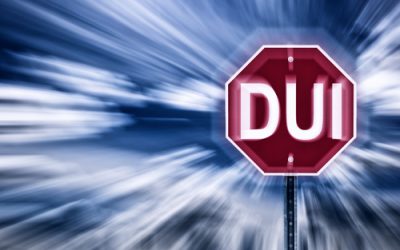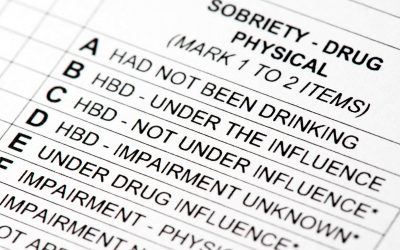
Many things can affect a blood alcohol test, and this means that a BAC test might not always give accurate results. In such cases, you will need the help of our Los Angeles DUI lawyers to help you evaluate all the possible defenses against your charge.
If the BAC test showed that you were over the legal limit, an attorney could look for plausible reasons why the BAC results don’t point to your intoxication. We have helped several other individuals before in similar situations, so we will ensure that you deserve justice. Get your free consultation today.
What Is a Blood Alcohol Test?
A blood alcohol test measures the level of alcohol in your bloodstream. A blood alcohol test may also be referred to as:
- Ethanol test
- Blood alcohol content
- Ethyl alcohol
- Blood alcohol level test
Most people are familiar with a breathalyzer that police officers usually use at traffic stops on those suspected of drunk driving. Although a breathalyzer gives a faster outcome, measuring the blood-alcohol concentration level gives more accurate results.
Alcohol is the primary ingredient in alcoholic drinks, such as liquor, beer, and wine. When you take any alcoholic drinks, it gets to your bloodstream and then to your liver. However, your liver can only process approximately one drink per hour. Therefore, if you take more alcohol than your liver can process, you will feel the effects of drunkenness, leading to impaired judgment, which has adverse effects while driving.
Types of Blood Alcohol Concentration Tests
Blood Alcohol Concentration (BAC) tests measure the level of alcohol in a person’s bloodstream. Different types of BAC tests include:
- Breathalyzer test: These breath tests use a handheld device to measure alcohol levels in the breath. It is quick and non-invasive, commonly used by law enforcement during traffic stops.
- Blood test: Alcohol blood tests involve drawing a blood sample and analyzing it to determine the amount of alcohol in the blood. This method is highly accurate and can detect alcohol levels up to several hours after consumption. Blood samples are often used for legal evidence.
- Urine Test: Urine alcohol testing requires the individual to provide a urine sample. This test can detect the amounts of alcohol in the body.
- Saliva Test: This test collects a saliva sample using a swab that will be sent to a lab for testing. This method provides quick results and is non-invasive, useful for detecting recent alcohol use, typically within the last 24 hours.
What Is a Blood Alcohol Content Test Used for?
You may have to take a blood alcohol level test for medical or legal reasons. When you go to a health center showing signs of heavy drinking, passed out, or confused, health experts will do a BAC test. Doctors use the blood alcohol test to know what’s happening and the best ways to care for you.
Another major reason for a BAC test is for legal purposes. For example, when a police officer suspects that you are driving while drunk or after a car accident, investigators can see if alcohol played a role. Statistics from the National Highway Traffic Safety Administration (NHTSA) show that 10,142 deaths resulted from drunk driving in 2019.
Factors Affecting Blood Alcohol Content Levels
Several factors can affect your blood alcohol content level, including:
Medication
Certain medicines can interact unpredictably with alcohol leading to adverse effects on your liver. Therefore, you need to ensure that the medication you take has instructions permitting you to drink alcohol. Additionally, some medical conditions can impact legal testing.
Food
Before alcohol consumption, consume a high-protein meal. Food helps to keep more alcohol in your stomach for an extended period, thereby slowing down the absorption of alcohol and increasing alcohol tolerance. If you drink on an empty stomach, it leads to faster alcohol absorption, excessive intoxication, and heightened effects of alcohol.
Body Weight
People with less body fat will have a lower BAC, unlike those with more body fat. This is because fatty tissues have less water content, so they absorb very little alcohol, which leads to more alcohol content in your bloodstream.
Consumption Rate
The faster you consume alcohol, the faster blood alcohol content rises because your system won’t metabolize the alcohol and will result in a shutdown. Fast consumption rate is one of the common factors when it comes to DUI charges.
Reasons Why a Blood Alcohol Test Might Be Incorrect
While it’s essential to know the reasons that can affect your BAC level, it’s also important to know the factors that can lead to a wrong blood test. Some of the reasons for an erroneous BAC include:
Insufficient Amount of Sodium Fluoride
Sodium fluoride is vital in blood alcohol tests. However, this element’s slight decrease or increase leads to a higher BAC level than the actual one.
Insufficient Amount of Potassium Oxalate
If there is insufficient potassium oxalate, it can also impact the BAC results. Lesser amounts of this compound result in blood clots leading to higher blood alcohol content because of the liquid-to-solid ratio impact.
Storage Problem
A technician or health expert should use a vacuum-sealed vacutainer to draw blood from a suspect. Note that the vacutainer should always be airtight, and technicians should avoid using an expired one. If a technician uses an expired container or uses one with a faulty seal, it impacts the chemicals used to measure BAC.
What Do the Blood Alcohol Test Results Mean?
The more alcohol you consume, your impairment level also increases. By knowing when your blood alcohol level might be too high, you will understand how the alcohol levels in your blood affect your body.
- 0.0 – 0.03%: This is the lowest BAC percentage level. At this intoxication level, you might feel more relaxed and slightly warmer.
- 0.04 – 0.06%: At this level, you will have exaggerated behavior such as more gesturing and speaking louder, impaired judgment, and you might also start losing control of small muscles, leading to things such as blurrier vision.
- 0.07 – 0.12%: This level easily leads to dangerous driving due to mild impairment of reaction times and vision. In fact, it’s illegal to drive at or above a BAC level of 0.08% in the United States, according to the Centers for Disease Control and Prevention (CDC).
- 0.13 – 0.15%: Loss of balance and coordination, blurred vision, and a possibility of dysphorias such as restlessness or anxiety are the possible effects at this level because the BAC level is quite high.
- 0.16 – 0.29%: This very high alcohol content level results in disorientation, confusion, and feeling dazed. You may need help while walking, and blackouts can occur.
- 0.30 – 0.40%: Your blood alcohol concentration is dangerously high at this level. There is a high likelihood of unconsciousness, irregular breathing, a coma, or even death.
Get Legal Advice and Representation From a Los Angeles DUI Attorney
If you, a family member, or a friend were charged with a DUI, you need the help of an experienced defense attorney to help you determine if the tests were accurate. A lawyer will also identify the defenses that will lead to a dismissal or reduce the offense to a less serious one. A DUI lawyer can affirmatively prove the reasons leading to a false positive BAC result.
We are ready to fight for your driver’s license, your future, and your freedom. Contact Los Angeles DUI Attorney today for a free in-depth case evaluation from our team of legal experts.







